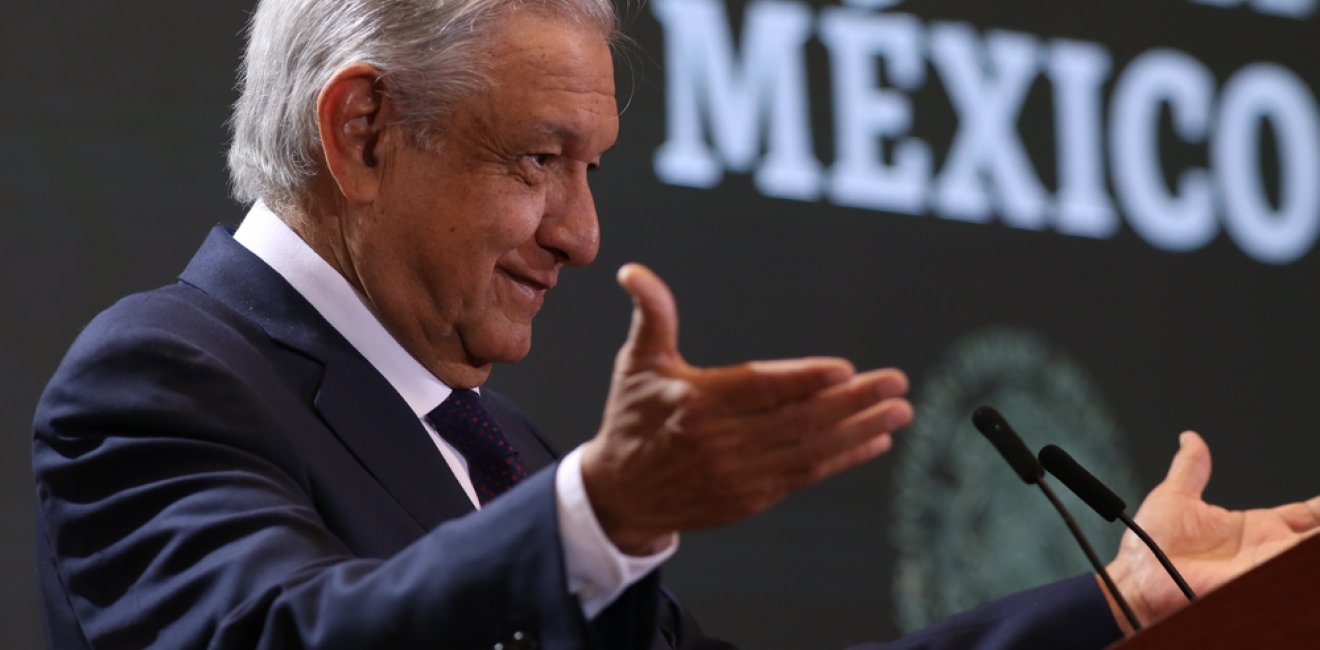Andrés Manuel López Obrador's (AMLO) presidential tenure has been marked by paranoid protectionism. The president brought arbitrariness and inserted the military into Mexican politics, all in the name of "transformation." Worse, during his mandate, negligence loomed large over the country's security problems, corruption still runs rampant, and emerging energy insecurity has hollowed trade and economic potential. Simply put, his administration stymied nearshoring momentum and deepened longstandinggovernance woes. Nevertheless, with general elections taking place June 2nd, the officialist National Regeneration Movement (Morena) is likely to retain the presidency.
Real change is improbable; yet, Mexico can still benefit from fragmenting global value chains. More public private partnershipsaround cleaner energy can fuel economic dynamism, in addition, the smart capitalization of natural gas supplies could provide a reliable lifeline for any incoming administration. Positively, this electoral process has underscored the need to further renewable electricity generation. Indeed, the creation of an "energy transition fund" would hasten North American integration, leading to manufacturing opportunities (i.e. semiconductor chips). Dismissing AMLO as authoritarian or as populist does not help explain neither the paradoxes seen during his term nor what could result from a second round of Morena leadership. Following a resounding victory at the polls in 2018, the incumbent movement promised to revitalize the country's left. Morena’s candidate, Claudia Sheinbaum—former Mayor of Mexico City and AMLO’s protégée—promises "radicalization.” Moreover, painful economic austerity during the COVID-19 pandemic has effectively evolved into increased social spending, just as the president rushes to open unfinished and expensive token projects. More critically, time and again, the governing coalition sidelined the country's nascent liberal agenda, dismembering institutions and degrading the National Electoral Institute (INE). Accordingly, AMLO would likely disregard a close loss at the ballot box, sowing chaos along the way.
More worrisome, the president's push to militarize governance and his idea of PEMEX as an engine of development have steered the country toward a dangerous route with no easy exit. Negative ripple effects across the economy will impact the broader tax base and, thus, have a direct influence on the composition of government spending. Looking ahead, Mexico will likely not be one of the surviving regional oil producers. Without a clear diversification strategy, the Dos Bocas refinery could become a $20 billion dollar stranded asset.
There is scant evidence that Sheinbaum will deviate from AMLO on major issues. A divided congress would give more power of selection to a new administration, more checks and balances are sorely needed, but power rifts and political violence stand as upmost concerns. For worse, how much the next government digresses (or not) from AMLO will be the order of the day. As hinted by recently proposed “reform initiatives,“ Obradorismo is likely to spill over to the next term, still, no vision to confront emerging challenges has been put forward.
Mexican politics has not seen a similar type of power centralization in decades—also true vis-à-vis the United States. President AMLO is openly using the weight of the federal government to propel electoral chances. Even so, it is a mistake to think of Morena's incipient machinery as the once-hegemonic, Revolutionary Institutional Party (PRI). For the country's poorest, López Obrador is the most relatable president in Mexican contemporary history. That said, it is his image that holds Morena together; serious internal cleavages exist within members of the ruling coalition, and future splintering could ignite discord regarding soldiers and organized crime framing public policy. In the same vein, frailperformance by opposition fronts has contributed to notable discipline under a Dr. Sheinbaum banner.
The source of AMLO's enduring popularity remains a topic of debate. Seldom noted in Washington, large segments of Mexico's population believe he has delivered. Similar to U.S. President Joe Biden in 2020, Claudia Sheinbaum might achieve victory by laying low but riding political momentum. Yet, the next administration will face stricter fiscal realities than in 2018. When push comes to shove, the legacy of the "fourth transformation" will likely prove amorphous, despite gridlocking in practice. Insolvency at the helm would deteriorate leverage with the armed forces—now more empowered. This, in turn, could result in more military dependence, policy change, or unprecedented post-presidency intromission by AMLO. In regard to the latter, the next presidential mandate revocation referendum—made constitutional during this sexenio—holds relevant disrupting potential. In the end, López Obrador decided to focus on his immediate present, prioritizing his place in Mexican History, instead of the future.
Author


Mexico Institute
The Mexico Institute seeks to improve understanding, communication, and cooperation between Mexico and the United States by promoting original research, encouraging public discussion, and proposing policy options for enhancing the bilateral relationship. A binational Advisory Board, chaired by Luis Téllez and Earl Anthony Wayne, oversees the work of the Mexico Institute. Read more

Explore More
Browse Insights & Analysis
Greenland’s New Governing Coalition Signals Consensus

The Future of France's Far-Right Party

Ukrainian Issue in Polish Elections

